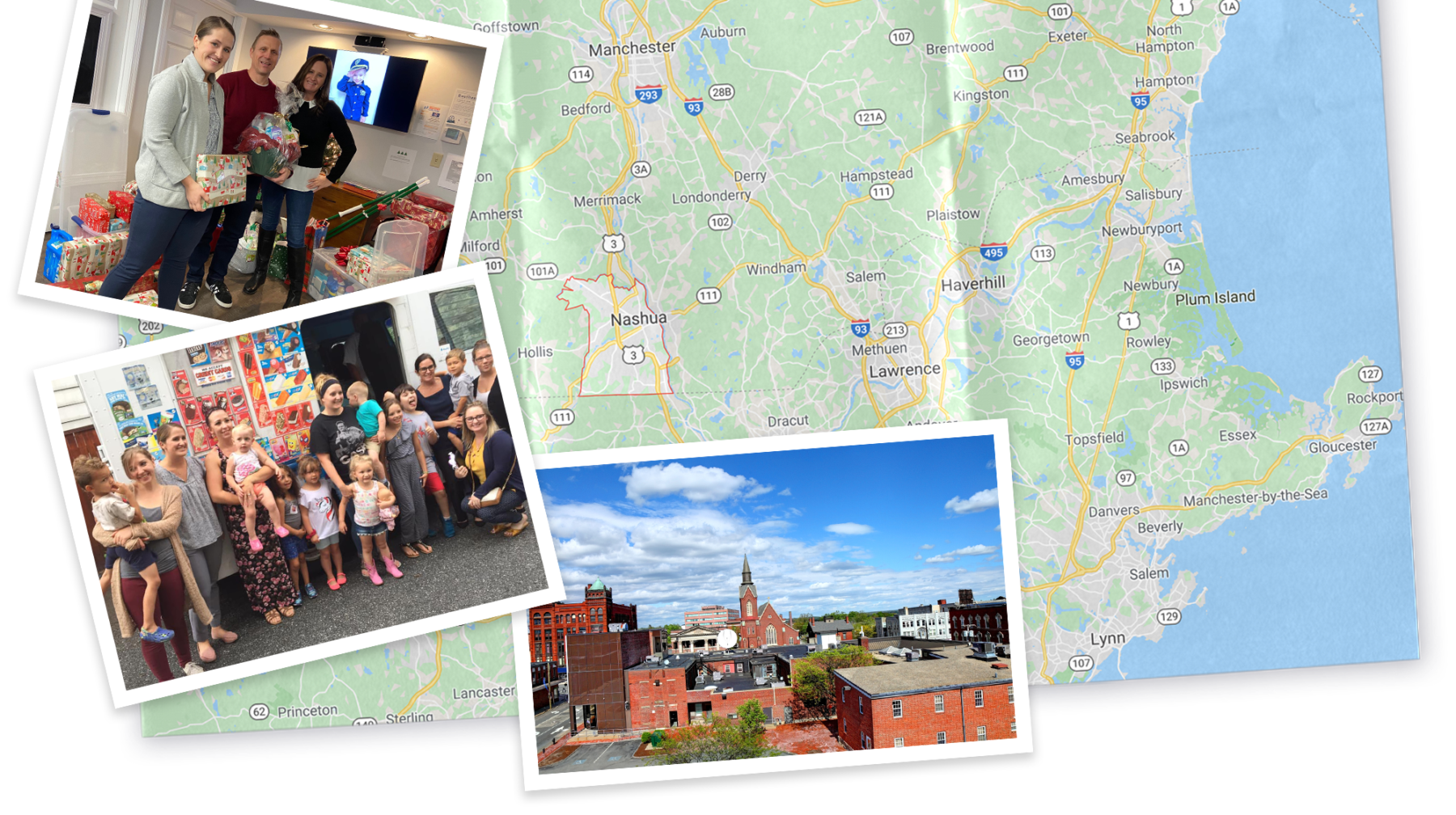
In Nashua, N.H., Hannah Stohler leads Marguerite’s Place, a transitional housing nonprofit for women and children in crisis that also provides residents with childcare, legal support, mental health counseling employment training, financial education, and peer mentoring as they build independence.
Photos courtesy of Marguerite’s Place and from iStock
Leap of faith
“We have an opportunity here to break the cycle.”
Diana* never thought she’d be homeless. But one day in 2017, after months of escalating conflict with her husband, she found herself standing outside her Nashua, N.H., home with a suitcase, four young children, and nowhere to go.
While applying for space in an emergency shelter, Diana learned about a wrinkle in the rules: If there was an opening anywhere in the state, she’d have to accept it. This meant that there was a good chance she’d have to leave Nashua, uprooting her kids from everything they knew.
But her luck turned when Diana got a call saying she’d made it to the top of a waitlist, and she and her family could move into subsidized housing — an apartment in a sunny house with a backyard and yellow flowers growing out front. And it would be right in downtown Nashua. It was one of 10 apartments that make up Marguerite’s Place, a transitional living program for women and children in crisis.
“Every single person who’s presently living here has some significant experience with trauma — whether that is domestic violence, substance use, or sexual abuse,” says Hannah Stohler, M.Div. ’16, executive director of the nonprofit, which, in addition to providing affordable housing, offers residents childcare, legal support, mental health counseling employment training, financial education, and peer mentoring. “We have an opportunity here to break the cycle, [but] it’s not pretty on a day-to-day basis. Growth and progress aren’t linear.”
No one knows this last part better than Stohler herself, whose own career path took an unexpected turn when she was in her 20s.
For years, the Connecticut native thought she would become a minister, having spent her childhood as part of a progressive United Church of Christ congregation that was “really committed to engaging community and building community.” That, and her church’s “kick-ass female leadership,” inspired Stohler to take the next step and enter Harvard Divinity School after graduating from Tulane with a degree in Spanish.
At Harvard she began to think about things differently. Besides her Divinity School curriculum, she also took courses at Harvard Kennedy School on tackling social issues through policy and programming. She made friends and talked with a variety of students about building and nurturing community, some of whom became “pastors and rabbis and ministers and imams,” and many others who trained for secular leadership roles in communities across the country and around the globe. Stohler concluded that what was most important was finding one’s own gifts and using them to better the world.
“I know that I have skills and gifts in building programming and leading,” she explains. “It is important, fundamentally, to my spirituality and to who I am as a person to be engaged in community-building work. That’s my purpose as designed by God.”
Although Stohler did not become a faith leader, she says the Christian values with which she was raised — humility, love, empathy, and justice — have guided her every step. And while developing budgets and attending organizational meetings may not always feel like “spiritual endeavors,” making a real difference in the lives of those in need is, for her, an act of devotion.
Particularly when it comes to clients like Diana, who went back to school and was able to open her own business. Stohler knows that without organizations like Marguerite’s Place, stories like Diana’s would be less common.
If Diana “had to fight for market-rate [housing], she wouldn’t have had the space to really reset,” Stohler says. “Now we’re so excited to watch her launch in the next six months.”
* Name and identifying details have been changed to protect individual’s privacy.
This story is part of the To Serve Better series, exploring connections between Harvard and neighborhoods across the United States.




